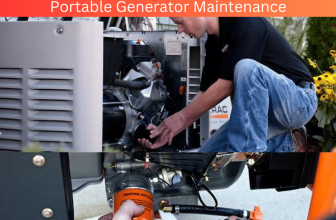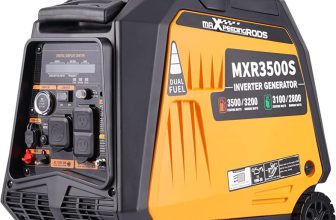Portable generators are a reliable and essential tool for homeowners, providing backup power in cases of emergencies or during outdoor activities. With an average lifespan of 10-20 years (1000-2000 hours), these generators can last even longer with proper care and maintenance.
In this post, we’ll explore the factors that affect the lifespan of portable generators, compare them to other generator types, and share maintenance tips to help you get the most out of your investment.
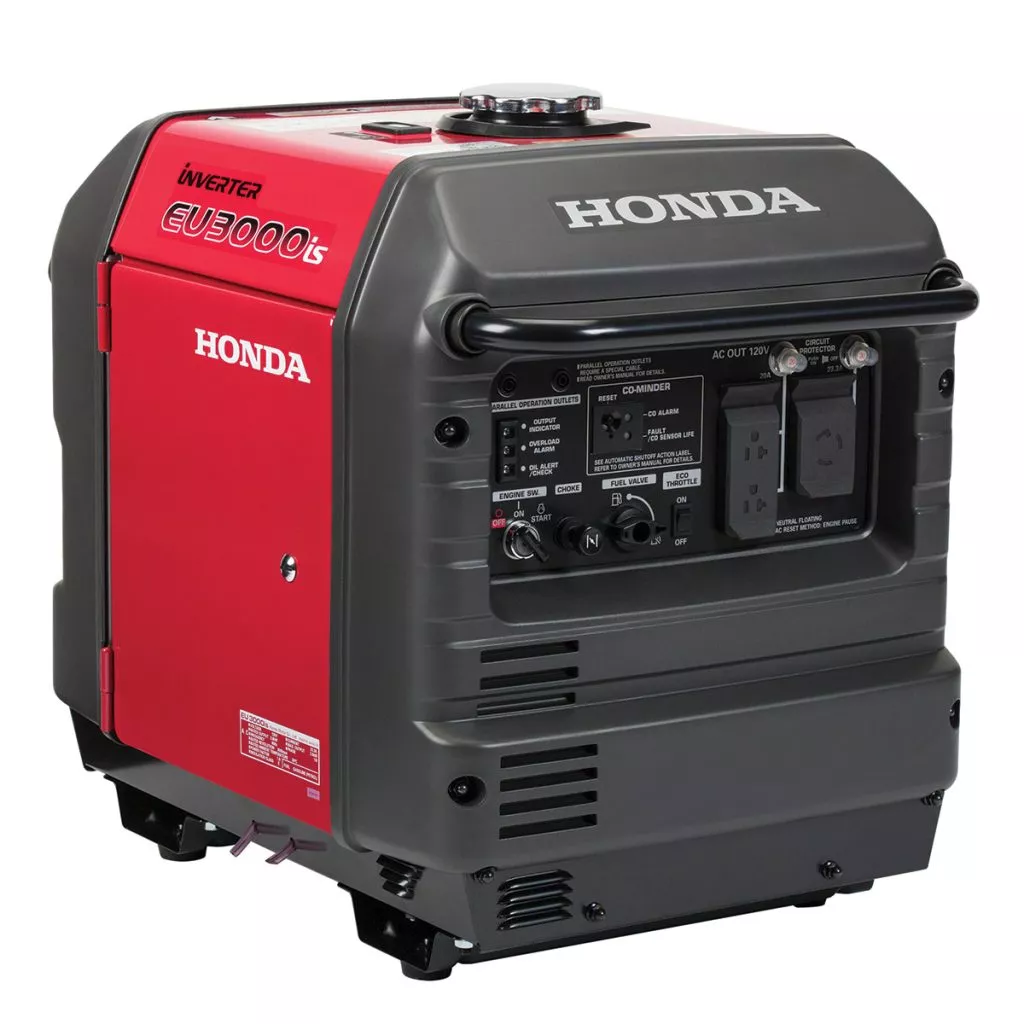
Key Takeaways
- Portable generators have an average lifespan of 10-20 years or 1000-2000 hours, but this can be extended with proper maintenance.
- Factors that affect the lifespan of a portable generator include load capacity, fuel type, and storage conditions.
- Proper maintenance includes regular oil changes and filter replacements, inspection of the fuel system, battery maintenance/replacement, and addressing common issues like stale fuel, clogged air filters, and damaged spark plugs.
- To extend the lifespan of your portable generator: use high-quality fuel/oil; run it regularly; inspect/replace parts as necessary; store it in a dry place away from debris; avoid overloading it.
Understanding The Lifespan Of Portable Generators
Portable generators have an average lifespan of 1000-2000 hours, with inverter generators typically falling within that range.
Average Lifespan And Types Of Generators
As a homeowner, it’s essential to know the average lifespan of different types of generators in order to make an informed decision when purchasing one for your home. Generally, portable generators have a lifespan between 1,000 and 2,000 hours, which can translate to around 10-20 years of use if they’re well-maintained.
portable generators have a lifespan between 1,000 and 2,000 hours
On the other hand, natural gas generators boast impressive lifespans averaging at about 25-30 years depending on how they are maintained and used. Inverter generators typically outlast their counterparts by lasting more than just 1,000 hours if properly cared for.
natural gas generators boast impressive lifespans

Factors That Affect Generator Lifespan
As a homeowner, it’s important to understand the factors that affect the lifespan of your portable generator. One significant factor is the load capacity – consistently running your generator at or near its maximum capacity can strain and wear out its vital components more quickly.
Another crucial aspect is fuel type. Diesel generators are known for their reliability, power, and longer lifespan compared to gasoline-powered models. However, selecting high-quality fuel and oil for any kind of generator significantly contributes to an increased engine life by reducing deposits that may build up over time.
Regular servicing also helps extend the longevity of your portable generator.
Keep in mind that no two generators are alike; their unique lifespans depend on how well they’re taken care of through preventative measures such as these mentioned above!
Image Credit: bhhcsafetycenter
Importance Of Proper Maintenance For Portable Generators
Proper maintenance for portable generators is crucial in ensuring that they last long and continue to operate efficiently. Regular oil changes, fuel system inspections, and battery maintenance are just a few of the important maintenance tasks that need to be done on your generator.
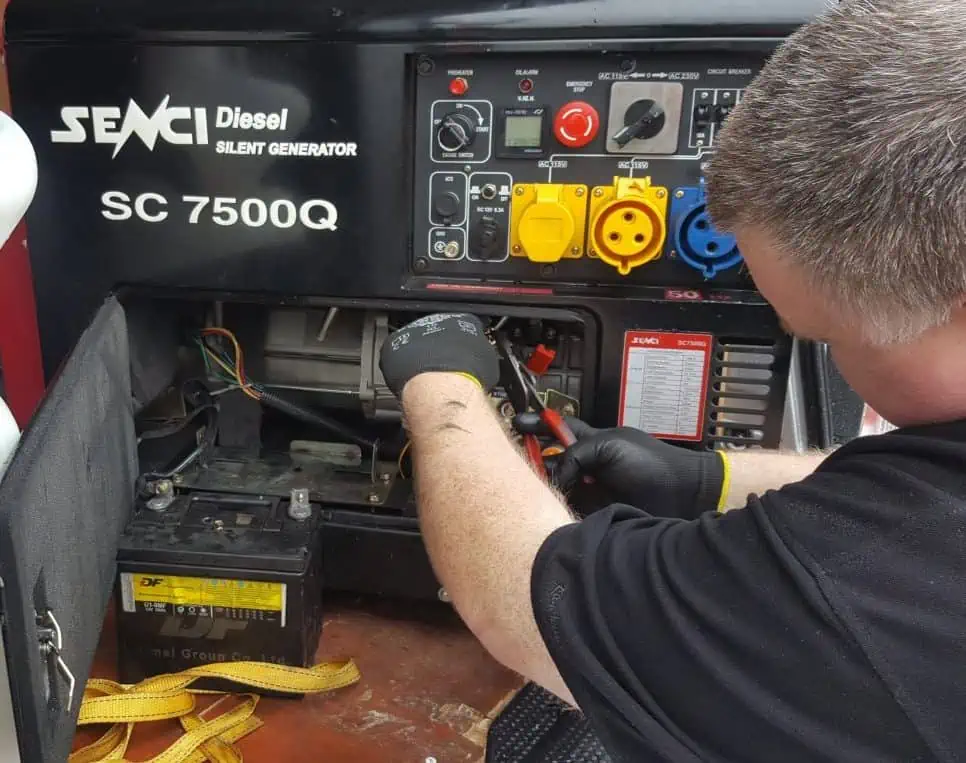
Regular Oil Changes And Filter Replacement
One of the most important maintenance tasks for ensuring your portable generator stays in good working order is to perform regular oil changes and filter replacements.
Generally, industry experts recommend changing the oil every 50 to 200 hours of operation. However, keep in mind that this frequency may vary depending on factors such as usage patterns, age and type of your portable generator.
In addition to changing the oil regularly, don’t forget about replacing the oil filter! This should happen at least every 200 hours or every two years – whichever comes first.
For instance, if you have a Gentrax diesel generator that powers up during outages or emergencies for a couple times each year with heavy load capacities, it’s crucial to follow these guidelines closely.
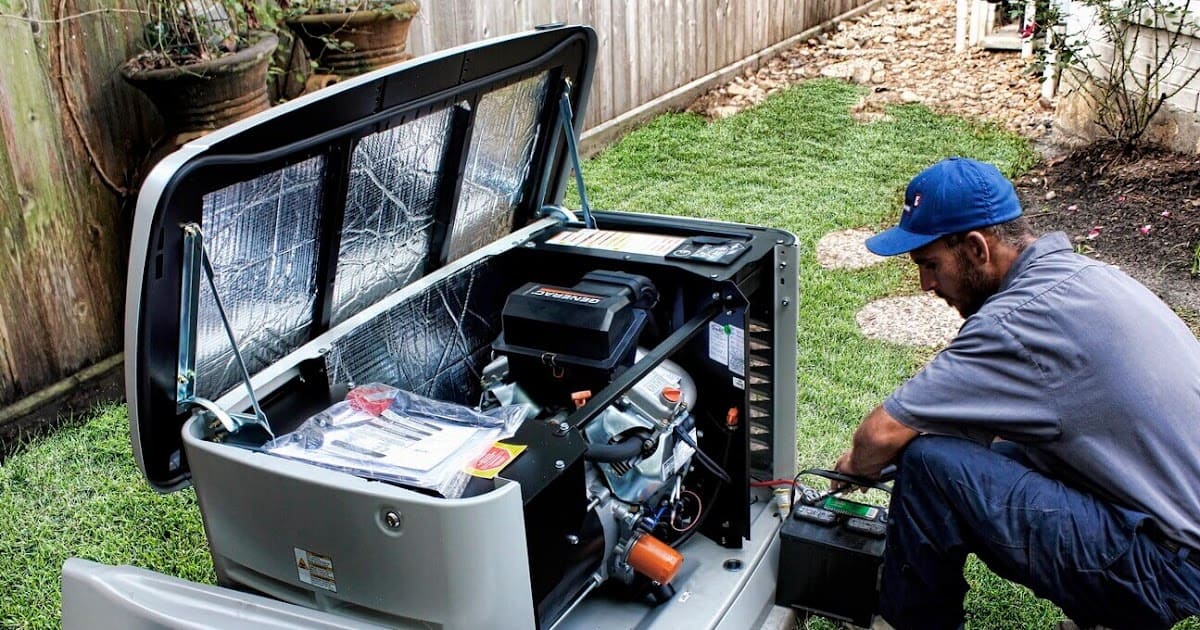
Image Credit: theedgesearch
Inspection Of Fuel System
As a homeowner, it is important to inspect the fuel system of your portable generator regularly. This includes checking for any leaks or cracks in the fuel lines and ensuring that the fuel tank is free of debris or water.
It is recommended that you get your portable generator inspected every six months or after every 400 hours of use by a professional technician who can thoroughly examine all parts, including the fuel system.
Battery Maintenance And Replacement
As a homeowner, one of the most important aspects to consider when it comes to maintaining your portable generator is ensuring that its battery is properly maintained and replaced.
Batteries can have a lifespan of 2-3 years, so it’s crucial to check them regularly and replace them if necessary.
A dead or weak battery can cause starting problems and even damage the engine over time. To avoid these issues, always keep an eye on the voltage level of the battery and test it periodically using a multimeter.
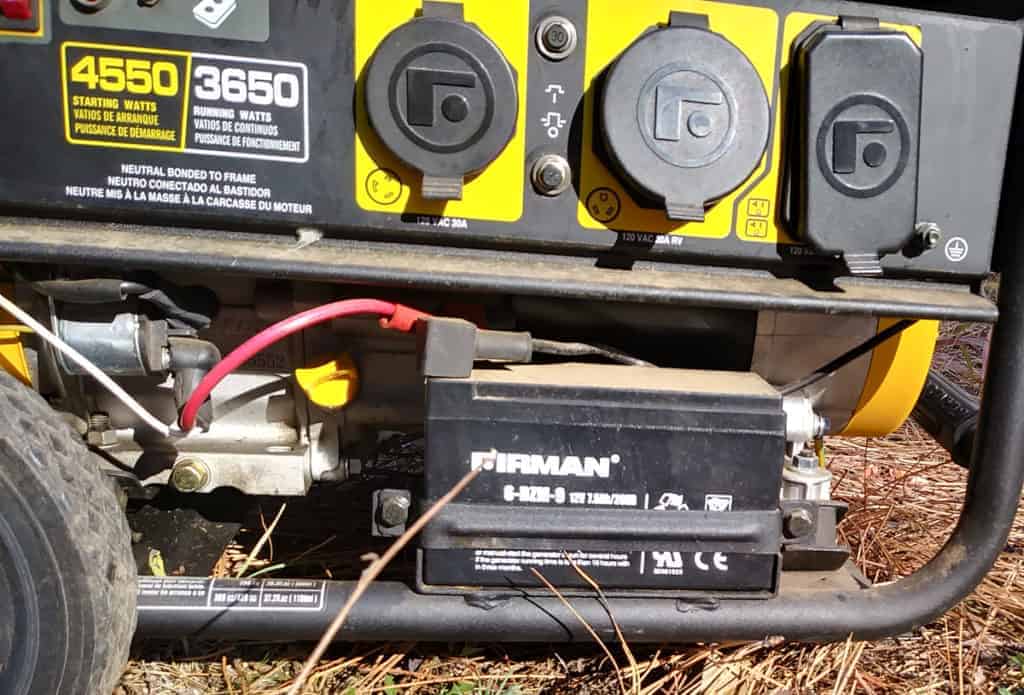
Image Credit: woodsyacres
Common Maintenance Issues And How To Fix Them
Stale fuel, clogged air filters, and damaged spark plugs are the most common maintenance issues for portable generators, but with proper care and regular servicing, they can easily be fixed.
Stale Fuel And Fuel System Maintenance
One common issue that affects the performance of a portable generator is stale fuel. Over time, the fuel can break down and produce harmful deposits in the fuel system, leading to starting issues or engine damage.
To prevent this, it’s important to use fresh fuel and drain any remaining gas after usage.
Regular maintenance of the fuel system is also crucial for prolonging the lifespan of your generator. This includes inspecting and cleaning the carburetor and checking for leaks or clogs in the hoses and filters.
If you notice poor performance from your generator or difficulty starting, it may be time to have a professional technician clean and service your generator’s fuel system to avoid costly repairs later on.

Image Credit: youtube
Clogged Air Filters And Replacement
One of the most common maintenance issues with portable generators is clogged air filters. When dirt and debris build up on the air filter, it can restrict airflow to the engine, causing it to run less efficiently.
This not only decreases the lifespan of your generator but can also lead to increased fuel consumption and higher emissions. To prevent this from happening, it is recommended that you replace your air filter after 1 year or 100 hours of use (whichever comes first).
Replacing your air filter is a simple process that can be done at home without any specialized tools. First, locate the air filter housing on your generator and remove its cover.
Then, carefully clean out any dirt or debris that has accumulated inside using compressed air or a soft-bristle brush. Finally, insert a new air filter into the housing and replace its cover securely.
Image Credit: generacpowerproducts
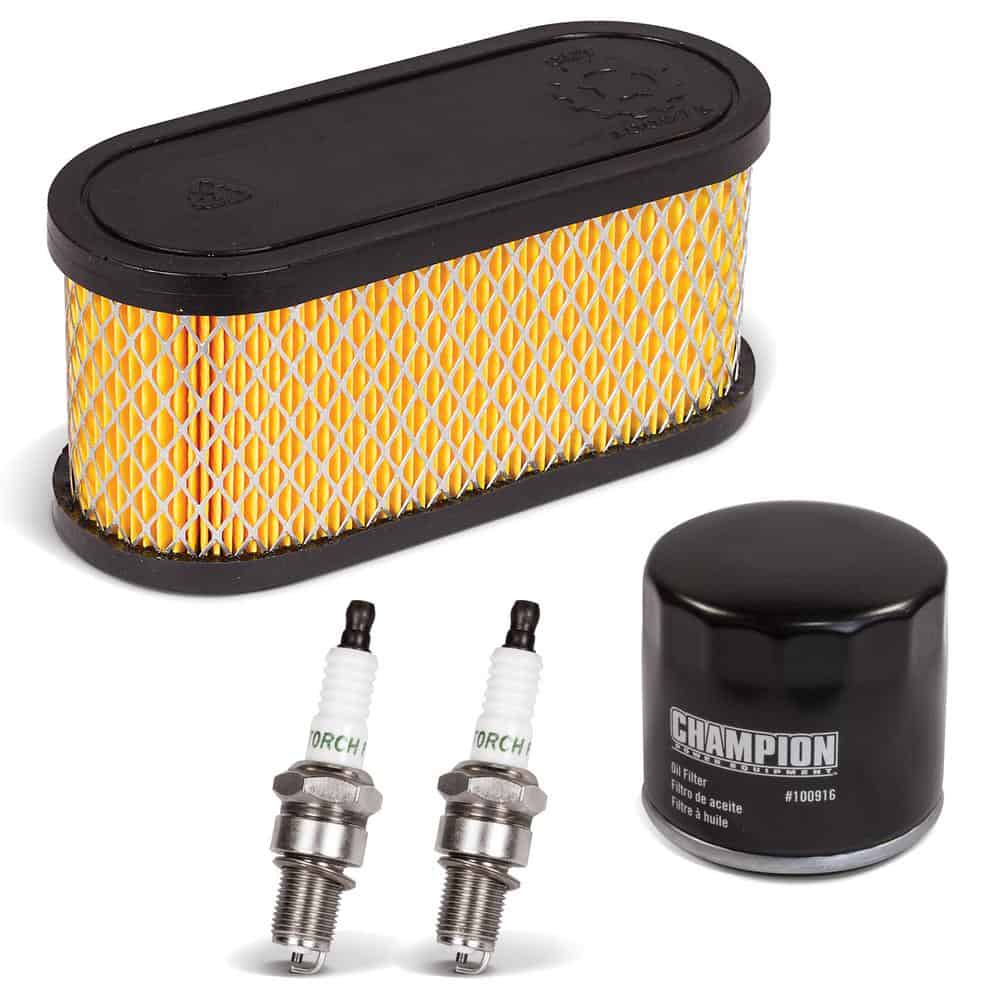
Damaged Spark Plugs And Replacement
As someone who has dealt with damaged spark plugs in my own portable generator, I can attest to the importance of regular maintenance. Fouled or damaged spark plugs can lead to hard starts, decreased acceleration, engine misfires, and even check engine lights.
Carbon buildup on spark plugs is a common issue in portable generators and should be avoided by using high-quality fuel and oil. If you do notice significant sludge or dark carbon accumulations around your spark plug during routine maintenance inspections, it’s time for a replacement.
Proper Storage And Use
As a home owner who relies on a portable generator during power outages, it is important to ensure your unit is stored and used correctly. One of the most crucial aspects of storage is keeping your generator in a dry place that’s free from debris and dust.
Moisture can lead to corrosion or damage vital parts, making it harder for the engine to start when you really need it. Proper use, on the other hand, involves always reading your manufacturer’s instructions so you know what type of fuel and oil are appropriate for your specific model.
The load size is also an essential consideration when operating your portable generator as overloading may trigger malfunctions that result in permanent damage to sensitive parts like capacitors.
Ideally, you should refer to load sizing charts provided by manufacturers or consider working together with professional electricians before using appliances that have not been tested yet.
Tips To Extend The Lifespan Of Your Portable Generator
Run your generator regularly to keep it from sitting idle for too long, use high-quality fuel and oil, and inspect and replace parts as needed. Properly store your generator when not in use, keeping it dry and out of extreme temperatures or weather conditions.
Running Generator Regularly
To keep your portable generator in good condition, it’s important to run it regularly. This helps keep the engine lubricated and prevents moisture buildup. I usually recommend starting up my generator every 3 months, even when there’s no storm or power outage expected.
When running your generator, make sure you’re not overloading it by using more wattage than its maximum capacity. You should also let the generator run for a few minutes after plugging in any devices before shutting it off.
Finally, always remember to turn off appliances before turning off the generator itself – this will help avoid damaging surges that can shorten the lifespan of your machine.
Use Of High-Quality Fuel And Oil
As a homeowner with a portable generator, one of the best things you can do to extend its lifespan is to use high-quality fuel and oil. Using cheap or old fuel can lead to clogs in your generator’s fuel system and damage its engine over time.
When it comes to oil, using the right type and changing it regularly can make all the difference in keeping your generator running smoothly. Most manufacturers recommend changing the oil every 100 hours of use or at least once per season.
For example, I recently had a client who neglected their Gentrax portable generator by using poor quality fuel and not changing the oil frequently enough. As a result, they ended up having to replace their entire engine prematurely.
Inspection And Replacement Of Parts
I always make sure to perform regular inspections of my portable generator’s parts, as this is crucial to ensuring its longevity. This includes checking the spark plug and air filter every 200 hours of use, or at least once each season.
Replacing the battery every two years (or up to three with proper maintenance) is also essential for keeping your generator in top shape. And don’t forget about the fuel system – make sure to inspect it regularly and address any issues promptly.
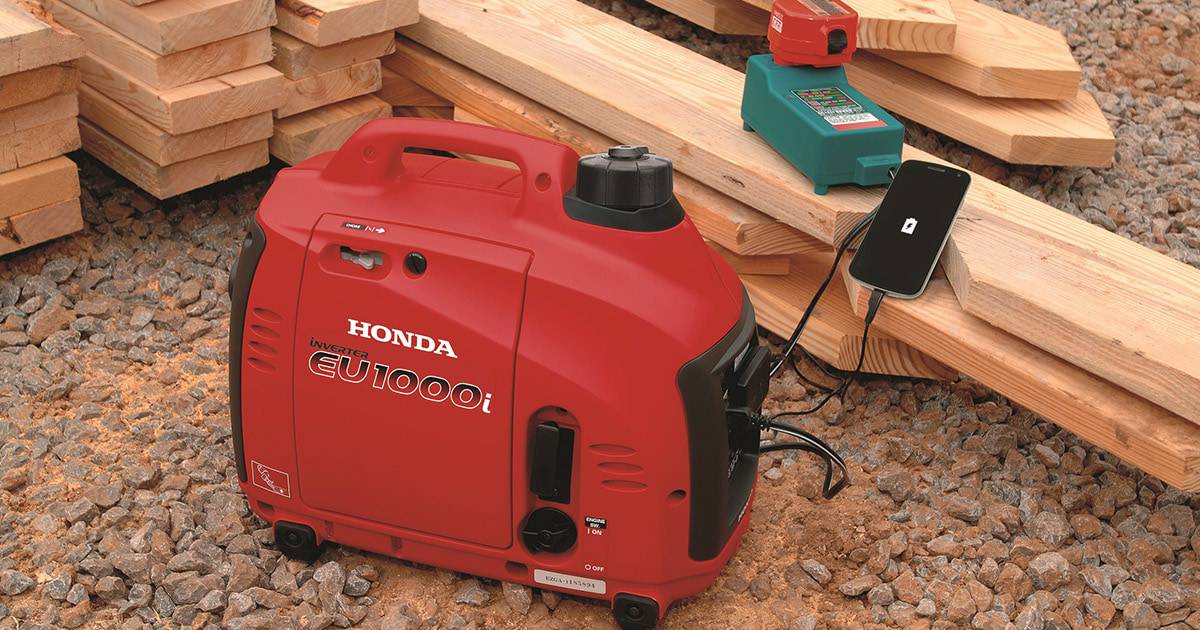
Image Credit: electricgeneratorsdirect
Environmental Factors To Consider
It’s important to think about the environment in which your portable generator will be operating, as this can have a significant impact on its lifespan and overall performance.
For example, if you live in an area with high humidity or frequent rain, you’ll want to take steps to protect your generator from moisture damage.
Similarly, extreme temperatures – whether hot or cold – can also affect your generator’s performance. In very hot conditions, for instance, you may need to adjust the fuel mixture or air intake to prevent overheating.
And in colder climates, it’s important to keep both the engine and battery warmed up (if applicable) before starting the generator.

Image Credit: firmanpowerequipment
Signs That Your Generator Needs Repairs Or Replacement
If you notice difficulty starting your generator, poor performance, strange noises or smells, or visible damage or wear, it may be time for repairs or a replacement.
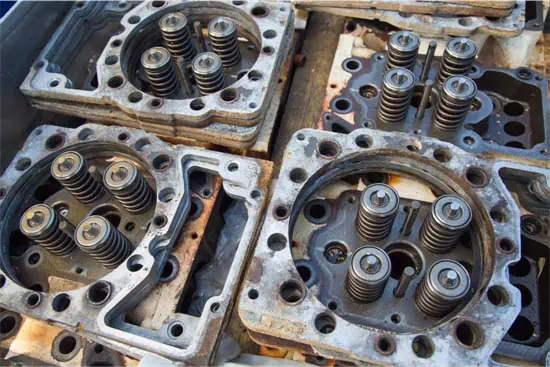
Image Credit: generatorsource
Difficulty Starting And Poor Performance
One of the most common issues with portable generators is difficulty starting and poor performance. This can be caused by a variety of factors, including stale fuel, clogged air filters or damaged spark plugs.
If you notice your generator struggling to start or not running at its best, it’s important to address the issue immediately. Check the fuel level and quality first, as this is often a quick fix.
Regular preventative maintenance can help catch issues before they turn into bigger problems that affect both performance and lifespan.
Strange Noises Or Smells And Visible Damage Or Wear
As a portable generator owner, being familiar with the sounds and smells of your generator is important. Strange noises or smells may indicate that your generator needs repairs or replacement.
Popping, grinding, or rattling noises could mean that there is visible damage or wear on parts such as the alternator, pistons, valves, or bearings. It’s also important to pay attention to any strange smells you might notice from your generator when it’s running; for instance, a gas smell could indicate a fuel leak which poses fire hazards while burning electrical components could suggest possible wiring problems.
Regular preventative maintenance can help avoid noisy operation along with engine failure due to normal wear-and-tear caused by constant daily usage over time.
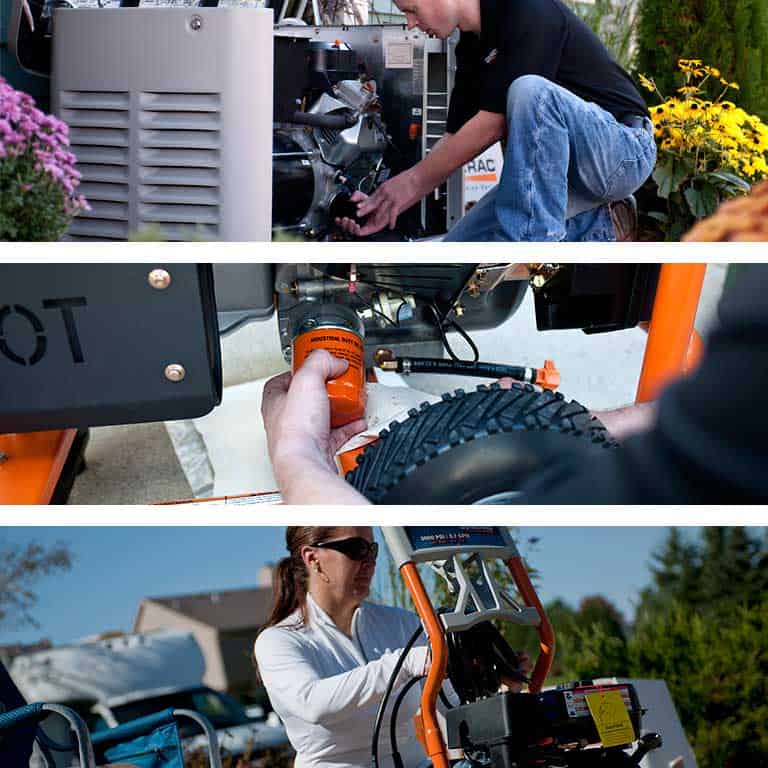
Image Credit: generac
Conclusion: How Proper Maintenance Can Help You Get The Most Out Of Your Portable Generator
In conclusion, a portable generator can last anywhere from 10-20 years with proper maintenance and upkeep. Regular servicing and inspections, use of high-quality fuel and oil, and storing the generator properly when not in use are all key factors that contribute to extending its lifespan.
It’s also important to be mindful of overloading the generator and using it regularly.
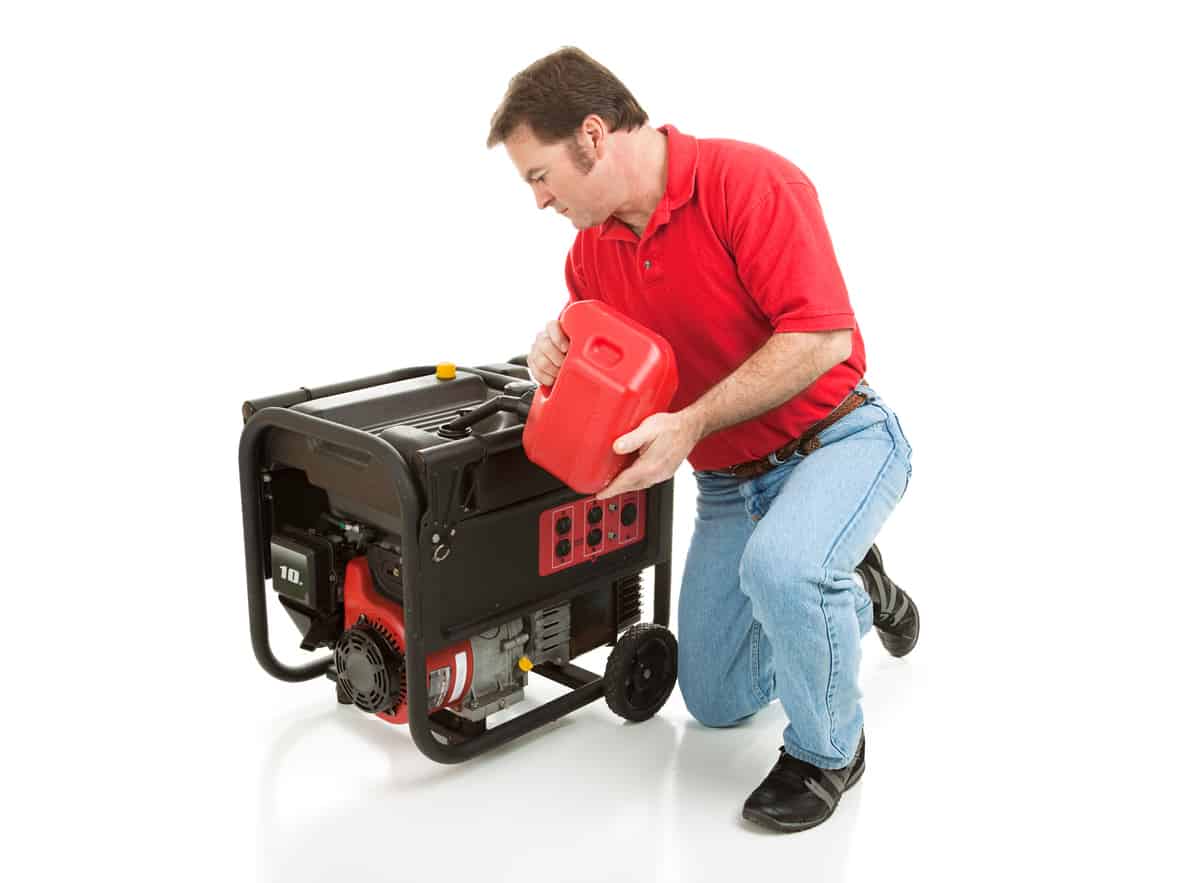
Image Credit: empowergenerators
What is the typical lifespan of a portable generator?
The average lifespan of a portable generator is around 10-20 years (1000-2000 hours) with proper maintenance and care.
How can I extend the life of my portable generator?
To extend the life of your portable generator, it’s important to conduct regular maintenance such as changing the oil, cleaning air filters and spark plugs, and ensuring proper storage when not in use. Additionally, using high-quality fuel and avoiding overloading the unit can improve its longevity.
What are some signs that my portable generator needs repairs or replacement?
If you notice frequent power outages or irregularities in electricity supply despite following proper usage instructions, your unit may require repairs or replacement. Other signs include unusual smells or noises coming from the system during operation.
Should I repair or replace my portable generator if it breaks down?
It depends on the extent of damage done to the unit as well as its age and value relative to potential repair costs. In some cases, replacing parts or conducting minor repairs may be sufficient whereas other units may necessitate full-scale replacements for optimal performance and safety reasons. Consulting with a professional technician can help provide clearer insights into determining whether repairing or replacing is more optimal in specific situations.



